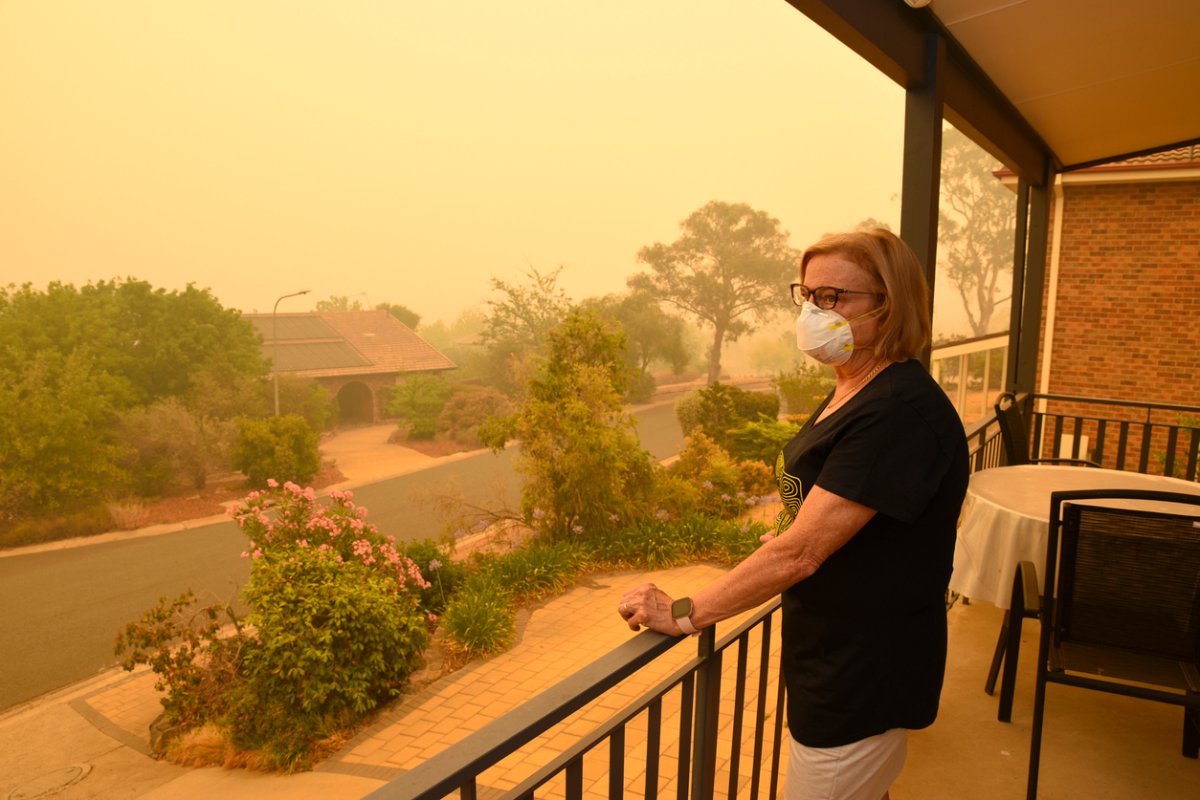

We may earn revenue from the products available on this page and participate in affiliate programs. Learn More ›
As wildfires continue to wreak havoc across the continent, including the recent devastating wildfires in Canada, the aftermath leaves behind a trail of smoke that spreads to nearby areas and even impacts regions hundreds of miles away.
The smoke can permeate every nook and cranny of homes in affected communities, leaving behind an invisible residue that has lasting effects. Wildfire smoke and ash contain small quantities of cancer-causing chemicals and can irritate the skin and respiratory system.
While it’s ideal to keep wildfire smoke out of your home and to use an air purifier, once the smoke subsides and the skies clear, it’s also important to undertake a comprehensive cleaning process to remove this residue and mitigate potential health hazards. Here are key areas to prioritize in the cleanup process to guarantee a safe and fresh environment for your family.
1. Pools

Wildfire smoke can deposit fine particles and ash on the surface of your pool water. If possible, it’s always best to cover the pool in the event of a nearby wildfire, but if you don’t, cleaning the water as soon as possible is imperative. This residue can affect the pool’s pH balance and filtration system, and failing to clean the pool can result in reduced water clarity and compromised chemical balance. It also can potentially affect the efficiency of your pool equipment.
RELATED: The Dos and Don’ts of Swimming Pool Maintenance
2. Siding
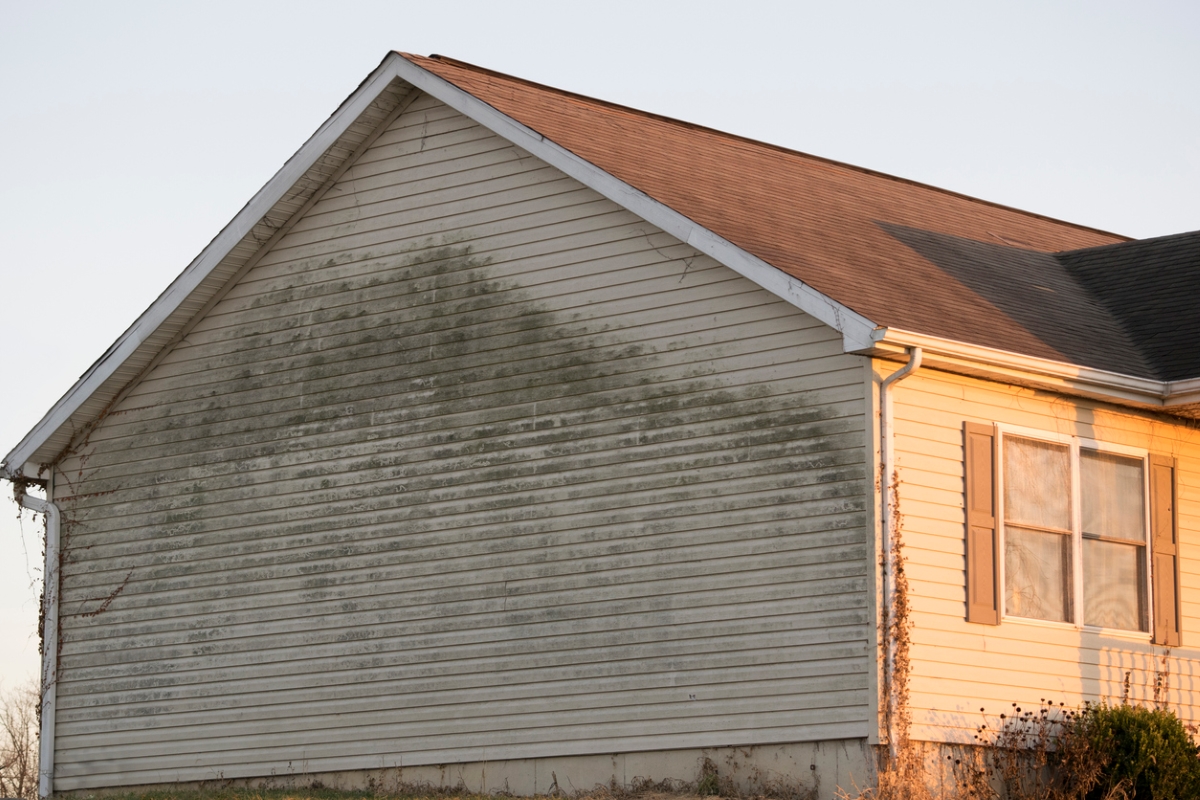
Smoke particles can settle on the exterior siding of the house, leaving behind a thin layer of residue. This residue can discolor the siding, making it appear dull and dirty. Not to mention, the chemicals present in the smoke may corrode the siding material if not cleaned promptly, leading to potential long-term damage. Use a pressure washer for the best results.
RELATED: The Best Vinyl Siding Cleaners for the Home, Tested
3. Exterior Doors and Windows
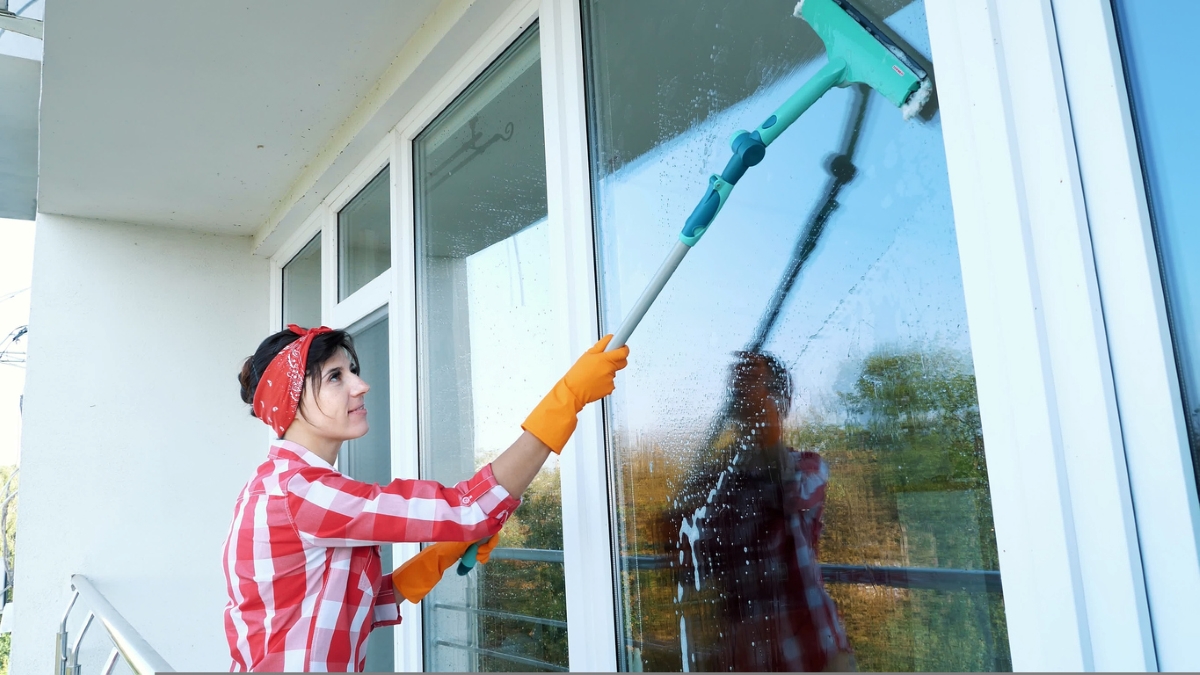
Smoke and ash on doors and windows can cause them to look dirty and cause damage over time. The residue can accumulate on the glass surface, making it appear hazy and reducing visibility. These residues may also deteriorate seals and weatherstripping if they’re not cleaned, compromising a home’s energy efficiency.
RELATED: How Much Does Window Cleaning Cost?
4. Driveway
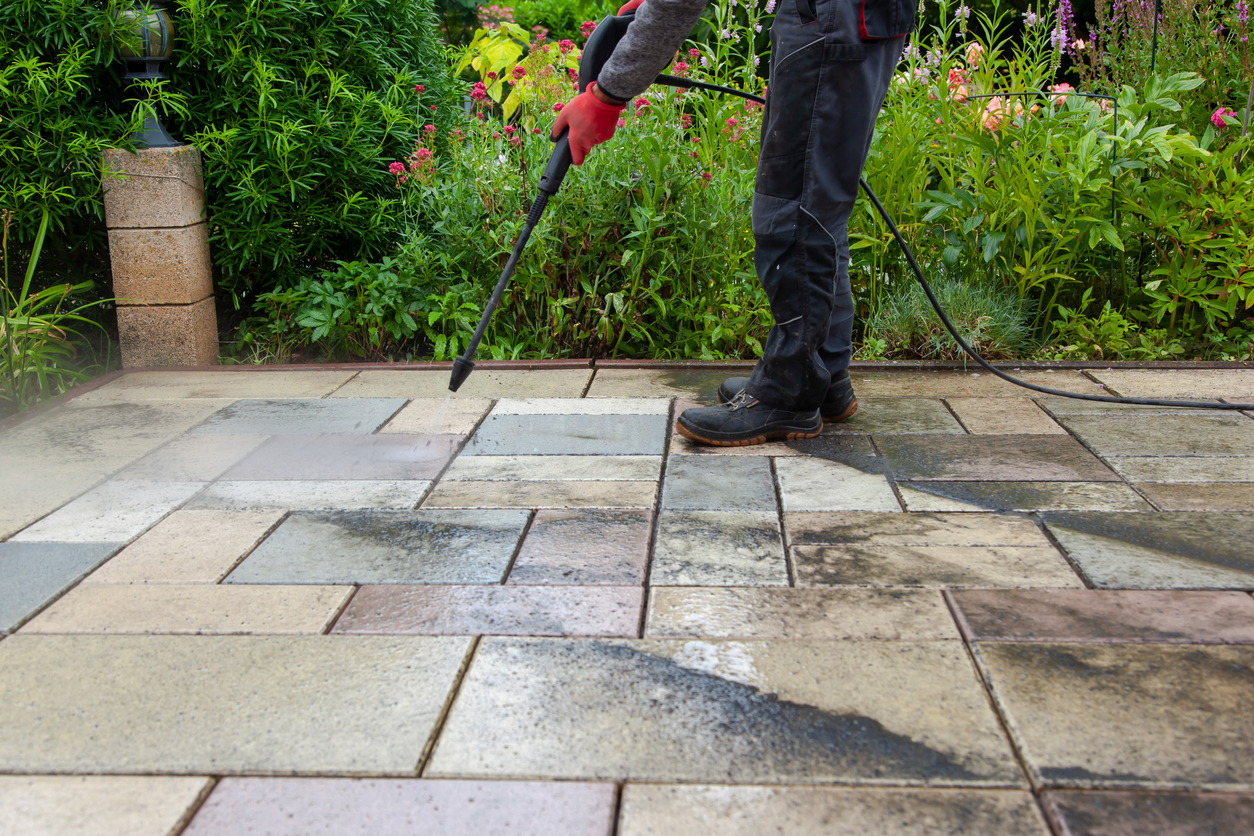
Driveways are often overlooked when it comes to post-wildfire cleanup, but they can accumulate significant amounts of smoke-related residues. Soot, ash, and debris can settle on your driveway during a wildfire, resulting in unsightly stains and discoloration. These residues are often composed of fine particles that can penetrate the porous surface of materials like concrete or asphalt. Cleaning your driveway is crucial for maintaining its appearance, preventing stains, and avoiding potential long-term damage.
RELATED: How to Clean Concrete Floors and Driveways
5. Deck or Patio
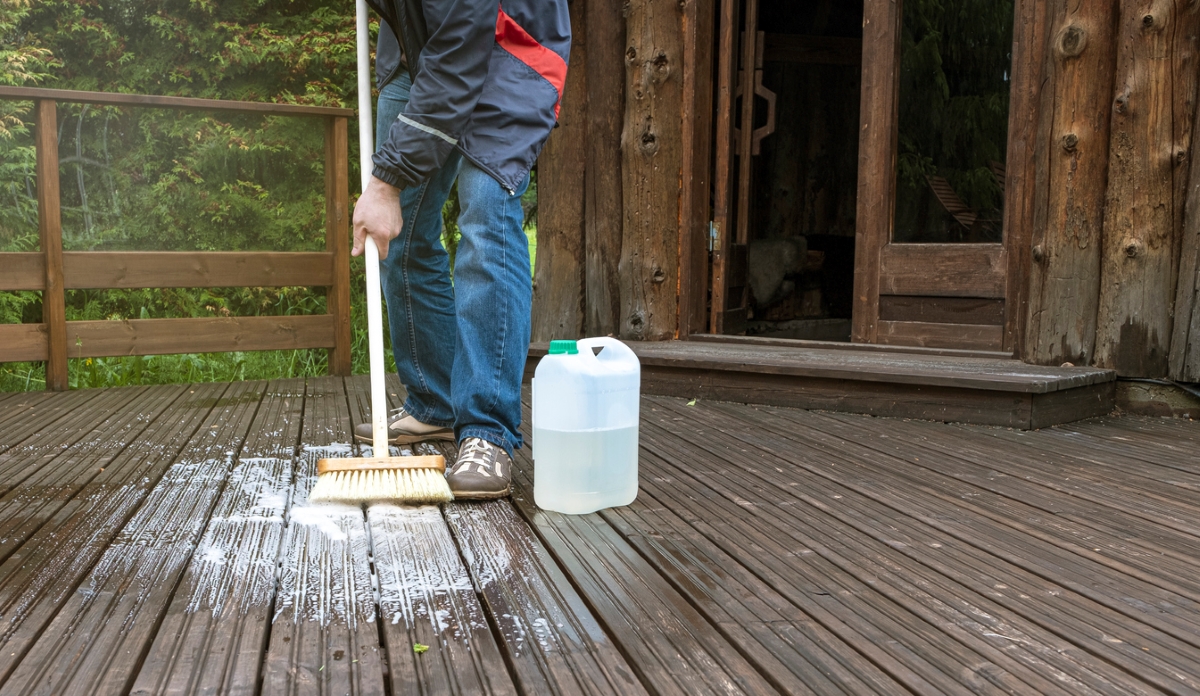
Smoke residue on deck or patio surfaces can make them look dirty, dull, and unattractive. The fine particles and ash from the smoke can accumulate between deck boards or settle into the crevices of patio materials like stone and concrete. Some of the particles in the smoke can deteriorate certain decking materials, such as wood or composite boards, leading to discoloration, warping, or even rot.
RELATED: The Dos and Don’ts of Deck Maintenance
6. Kids’ Playsets
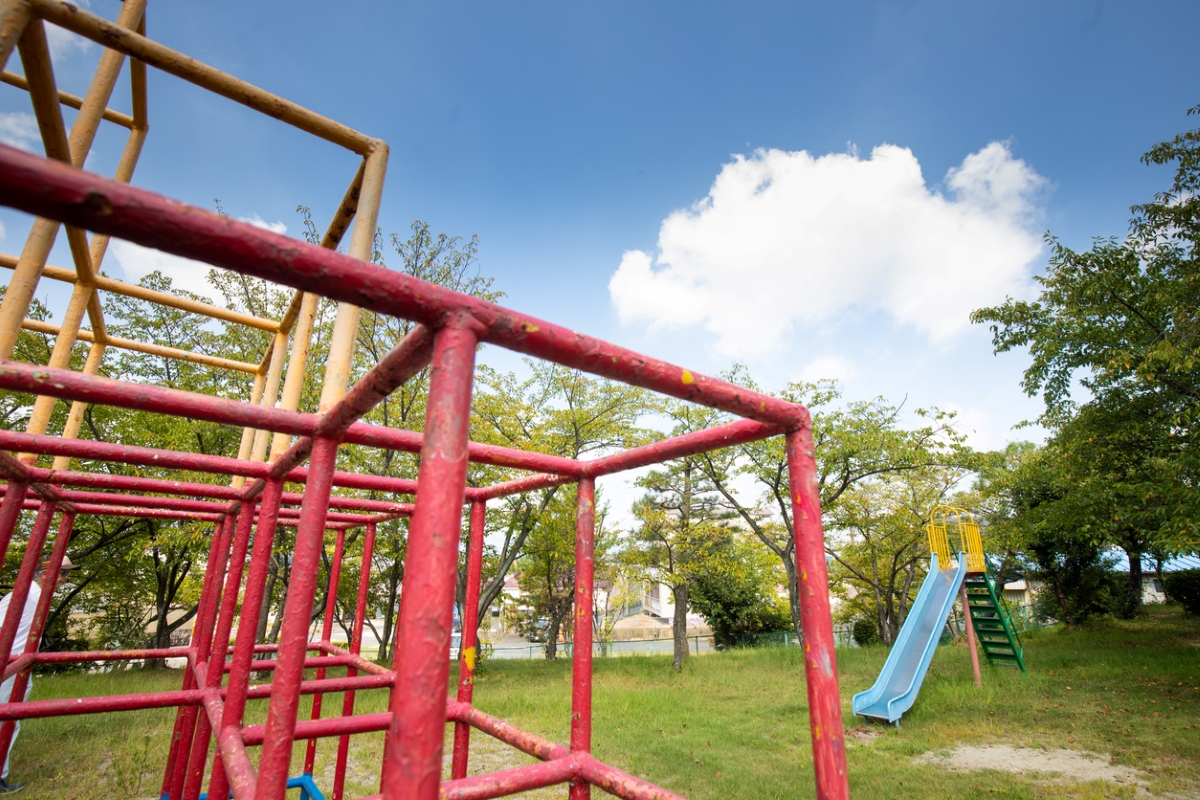
Kids’ playsets, including slides, swings, and climbing frames, are exposed to the elements and can accumulate smoke residues during a wildfire event, posing a health risk to children. Fine particles and chemicals from the smoke can settle on the surfaces, making them dirty and potentially transferring harmful substances to children’s skin upon contact. This can cause skin irritation, allergic reactions, or respiratory issues in those with higher sensitivities.
7. Rain Barrels

If you use rain barrels to collect water for gardening or household chores, it’s crucial to ensure that the collected water remains clean and uncontaminated. Smoke residue can settle in rain barrels and compromise the quality of the stored water. Cleaning the barrels after a wildfire will prevent potential contamination and ensure the water remains safe for future use.
RELATED: How to Clean Gutters: 5 Effective Ways to Get the Job Done
8. Grills
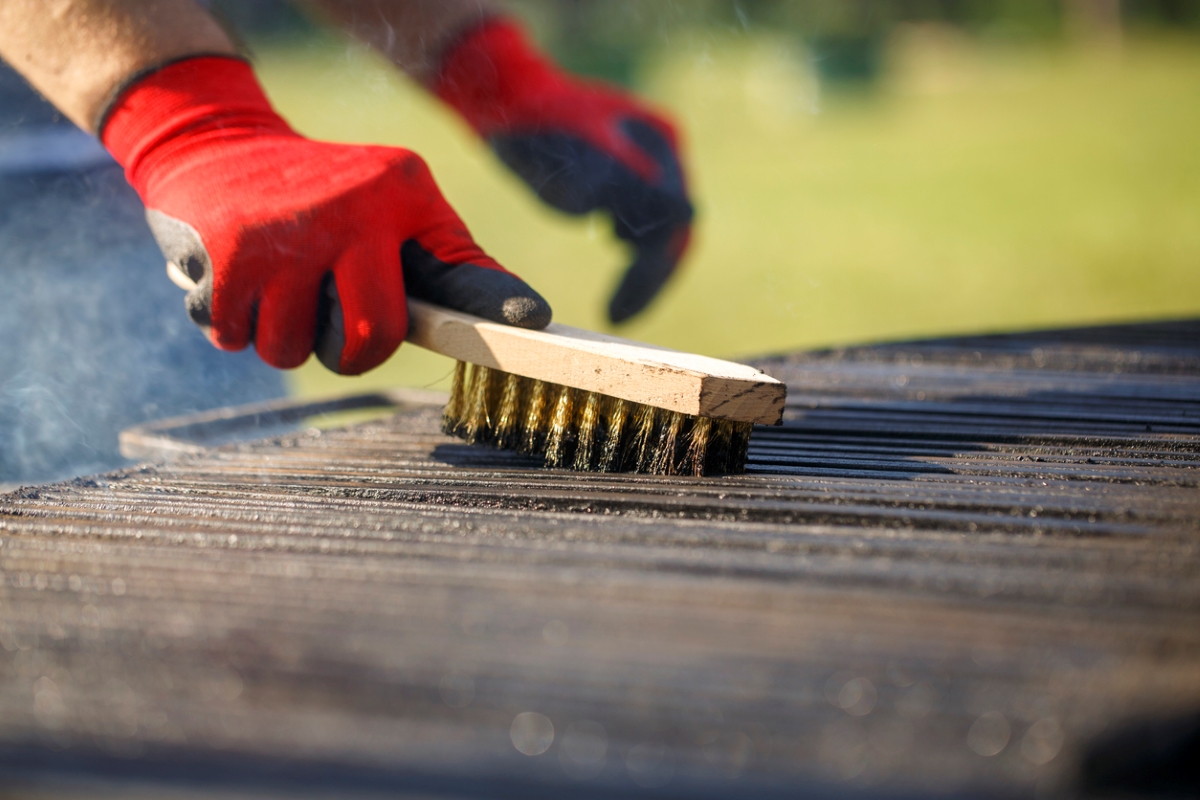
Barbecue grills can be exposed to smoke residue during wildfires, so it is crucial to thoroughly clean their cooking surfaces to ensure safe food preparation. Consuming food cooked on a grill with smoke residues may not pose significant health hazards. Still, it can result in an altered taste and potential ingestion of fine particles or chemicals present in the residue.
RELATED: After Scraping, Spraying, and Soaking, These Are the Best Grill Cleaners
9. Bird Baths
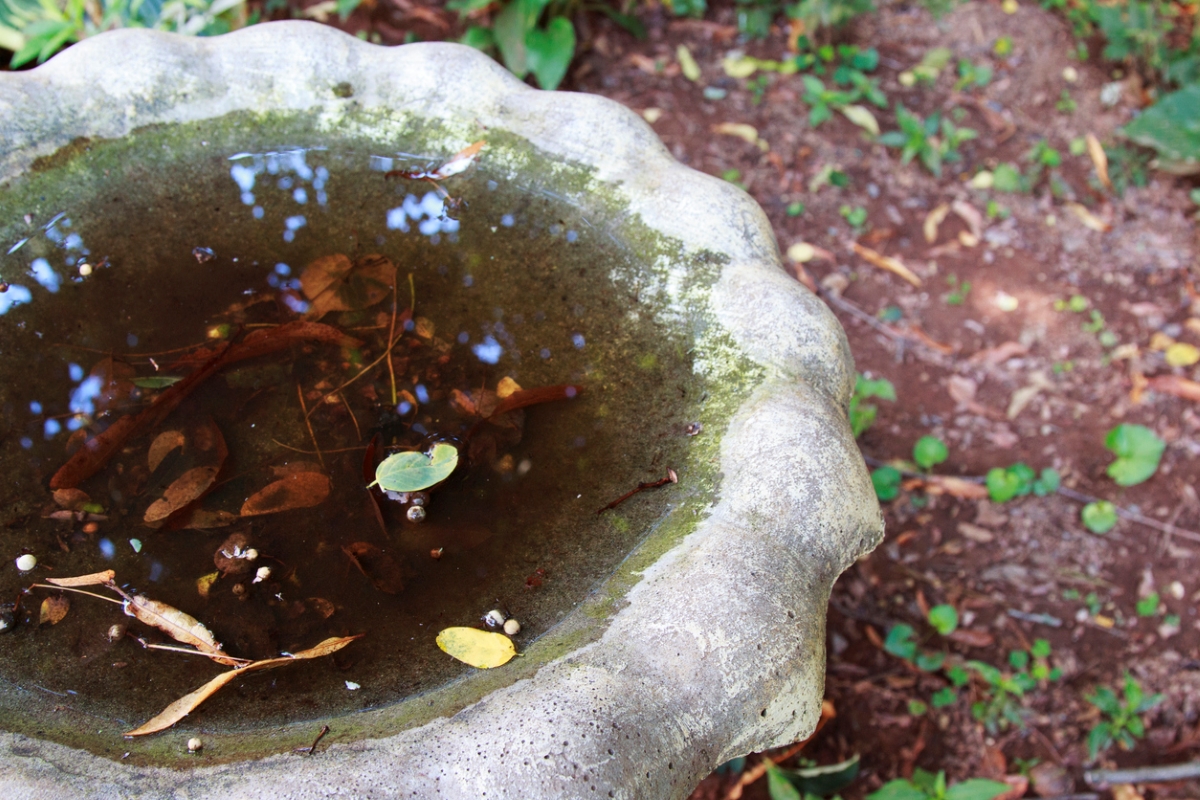
Bird baths serve as vital water sources for our feathered friends, especially during the dry and challenging times when wildfires typically take place. Fine particles, ash, and chemicals from the smoke can accumulate in the water, leading to poor water quality and potential health hazards for birds that rely on it for hydration and bathing. If the smoke residues in bird baths are not promptly cleaned, the poor water quality can discourage birds from using them, depriving them of a vital resource.
RELATED: How to Clean a Bird Bath the Right Way
10. Patio Furniture
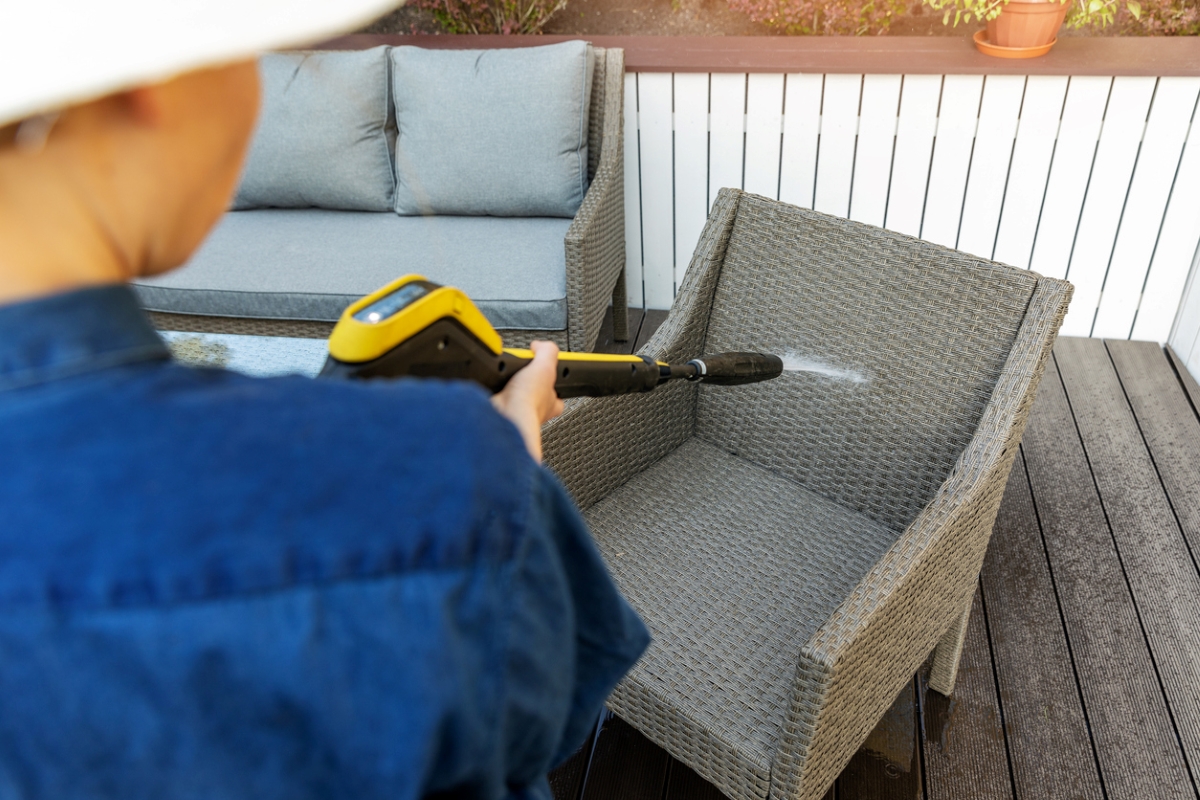
Patio furniture can also fall victim to smoke residue during wildfires. When it comes to upholstered pieces, the residue can cause staining if it’s not cleaned shortly after the wildfire event takes place. The lingering smoke particles can also contribute to an unpleasant odor. Wood and metal furniture should also be wiped down to prevent potential long-term damage.
RELATED: The Dos and Don’ts of Cleaning Patio Furniture
11. Outdoor Plants

Outdoor plants and vegetables may require special attention and care following a wildfire event to ensure their health. It might be necessary to increase watering frequency temporarily to compensate for the dry conditions caused by the fire. It’s also a good idea to spray outdoor plants with water to remove ash and smoke residue from their leaves. If the fire happened nearby, it may be smart to conduct a soil analysis to determine if the fire has affected the soil’s composition and nutrient levels.
RELATED: Soil Testing 101: What All DIY Landscapers Should Know
12. Air Filters

Following a wildfire event, various filters in your home should be cleaned or replaced to ensure continued optimal air quality. For example, the filters in your heating, ventilation, and air conditioning (HVAC) system are essential for capturing airborne particles, including smoke residue. If you used a vacuum cleaner to clean up smoke residues or ash, clean or replace the filters in the vacuum to maintain its suction power and prevent the release of trapped particles back into the air. Those living in wildfire-affected areas should check and replace the cabin air filters in vehicles to ensure the air entering a car’s interior remains clean.
